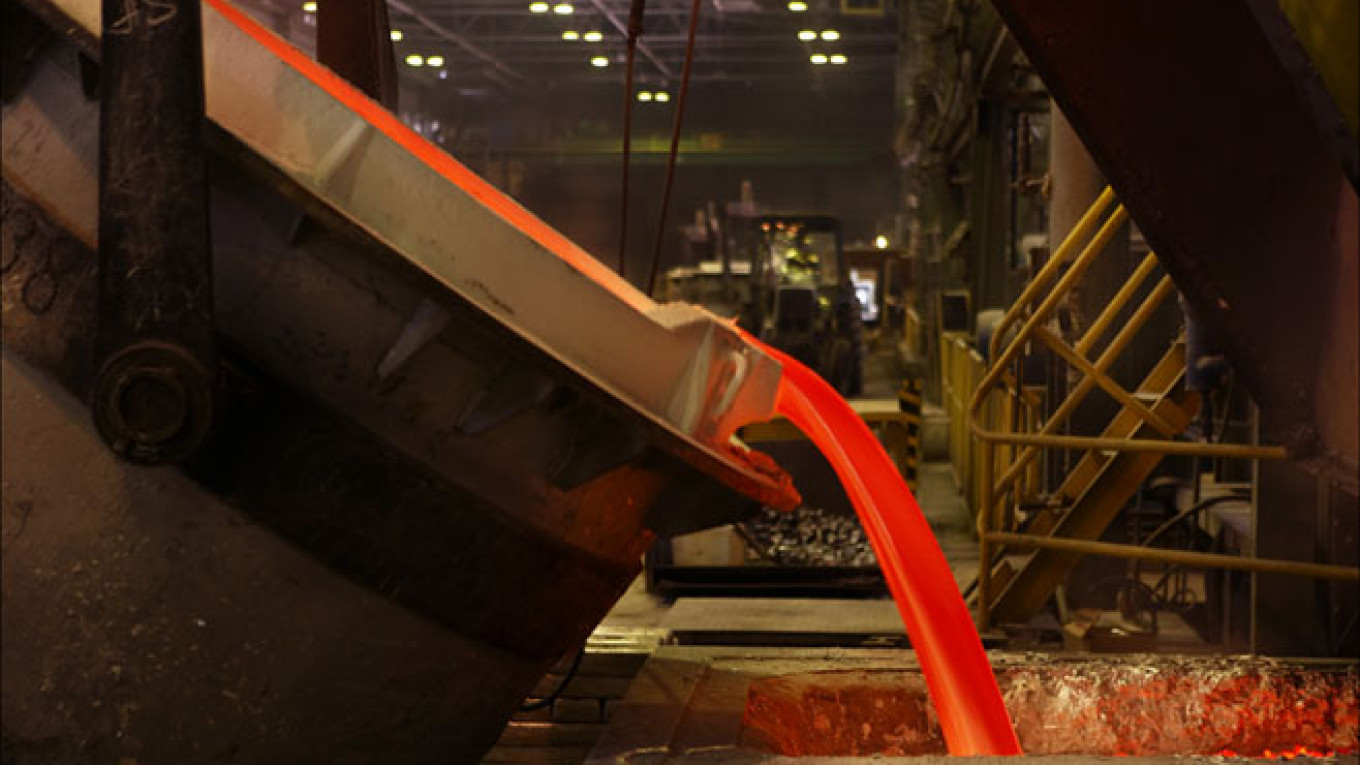Aluminum giant United Company RusAl wants to make Indonesia a regional hub for its alumina production and will decide on an initial investment by the end of this year, said a senior official with its parent company.
Maxim Sokov, first deputy CEO of En+, said it was an "ideal time" to invest in Indonesia with global aluminum prices expected to bottom out this year, thanks in part to the country's ban on bauxite exports.
"We are in the moment in the cycle when there are a number of events that are coming together to help prices start to go upwards again," Sokov said this week during a visit to Jakarta as part of a high level Russian delegation led by its deputy prime minister.
"Indonesia ticks all the boxes and is the best platform for the next cycle of growth."
Indonesia banned all unprocessed mineral ore exports last month in an effort to force miners to build smelters and process their raw materials domestically. Before the ban, the Southeast Asian nation provided about 60 percent of China's bauxite imports.
The withdrawal of Indonesian bauxite from the global market has found widespread support among global mining giants like loss-making RusAl, which has been hit hard by weak aluminum prices.
Sokov said RusAl has lost its position as the world's top aluminum producer to Aluminum Corp. of China Ltd., or Chalco, after the Russian company shut down at least three smelters in the western part of the country.
New Opportunity
RusAl is now looking at Indonesia to replace the lost smelting capacity.
"Our plan is to close all the high-cost smelters, keep our low cost base and look for the new opportunities to expand that low cost base. Indonesia is that new opportunity," Sokov said.
RusAl on Tuesday signed an MOU with Indonesia's PT Arbaya Energi to build an alumina smelter in West Kalimantan, the heart of the country's bauxite industry. Bauxite is a key ingredient in making alumina, which is then processed to yield aluminum.
Sokov said the company will decide by the end of this year whether to build the smelter after first conducting a feasibility study, declining to say how much the smelter would likely cost.
Indonesia's Chief Economics Minister Hatta Rajasa said the two companies planned to invest as much as $3 billion in smelters, according to The Jakarta Post.
RusAl previously signed an MOU in 2007 to build an alumina smelter in Indonesia, but decided against investing when the global financial crisis hit.
Sokov, who is also a board member of Russia's Norilsk Nickel, is much more optimistic this time around due to a combination of production cuts, smelter shutdowns and stable global demand growth.
He expects aluminum prices to return to $2,500 a ton in the next three to four years, about the same time it would take for a new Indonesian smelter to come into operation. The benchmark LME three-month aluminum price reached $1,761 a ton on Thursday, down about 2 percent so far this year.
For Indonesia, Sokov estimates Southeast Asia's largest economy needs about 3 million tons of aluminum a year, which requires around 6 to 7 million tons of alumina.
"If Indonesia wants to convert up the value chain, it has the best momentum and has everything in its own hands. If it loses this opportunity, it will be a real pity," Sokov said, adding that the Philippines and Malaysia could be alternatives as a regional hub.
A Message from The Moscow Times:
Dear readers,
We are facing unprecedented challenges. Russia's Prosecutor General's Office has designated The Moscow Times as an "undesirable" organization, criminalizing our work and putting our staff at risk of prosecution. This follows our earlier unjust labeling as a "foreign agent."
These actions are direct attempts to silence independent journalism in Russia. The authorities claim our work "discredits the decisions of the Russian leadership." We see things differently: we strive to provide accurate, unbiased reporting on Russia.
We, the journalists of The Moscow Times, refuse to be silenced. But to continue our work, we need your help.
Your support, no matter how small, makes a world of difference. If you can, please support us monthly starting from just $2. It's quick to set up, and every contribution makes a significant impact.
By supporting The Moscow Times, you're defending open, independent journalism in the face of repression. Thank you for standing with us.
Remind me later.


